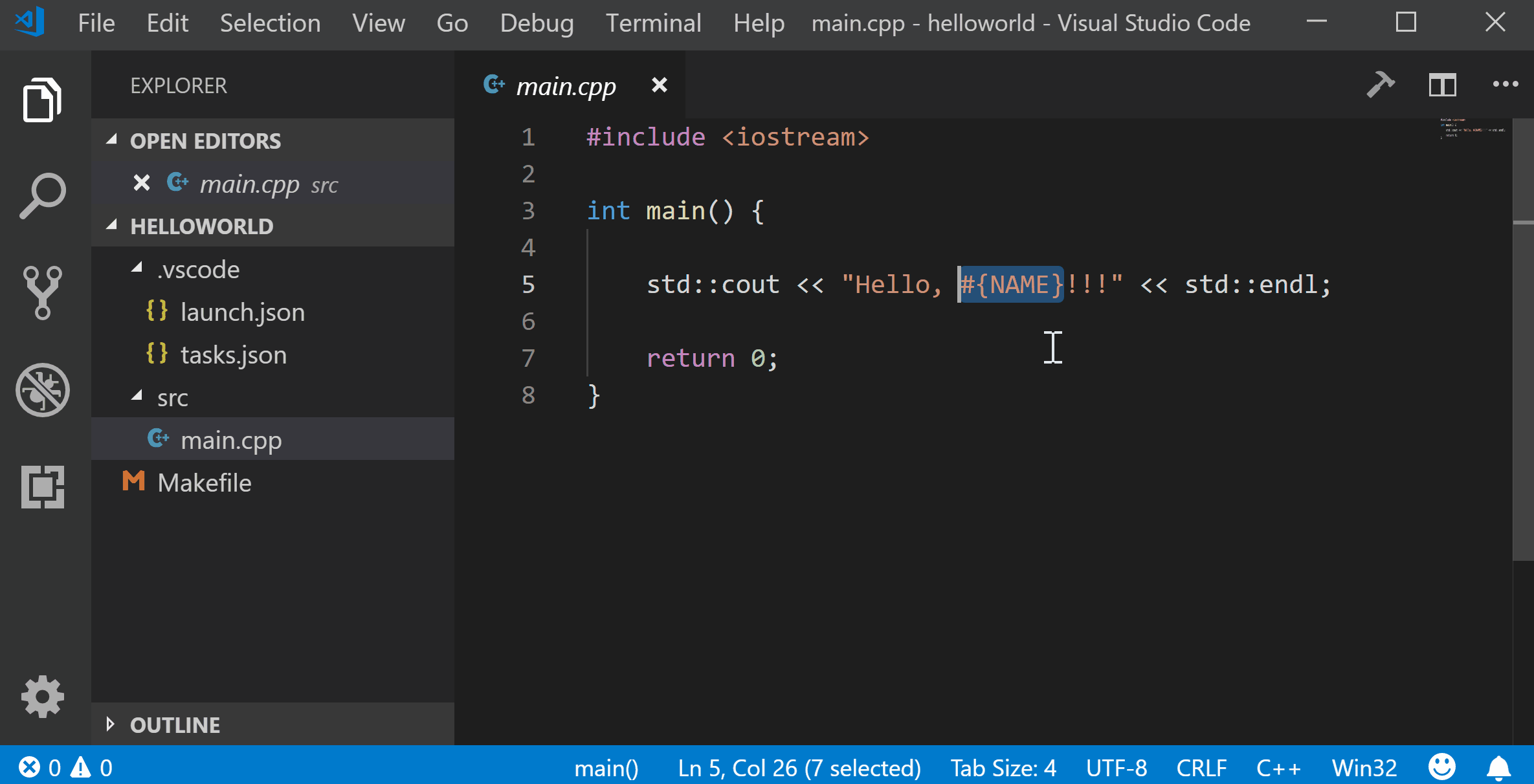Project Templates VSCode Extension
Visual Studio code extension that allows you to quickly create new projects based on custom templates.
Inspired by this File Templates Extension, which is itself inspired by a similar Atom Extension.
Features
- Create a new project from a template directory
- Save the current project as a template directory
- Use customizable placeholders for easy interactive configuration

Install
In Visual Studio code, Press F1 to open the command menu and type ext install cantonios.project-templates.
Extension Settings
This extension contributes the following settings:
{
"projectTemplates.templatesDirectory": "", // default directory containing project templates
"projectTemplates.usePlaceholders": true, // activate placeholder substitution
"projectTemplates.placeholders": { }, // dictionary of default placeholder key-value pairs
"projectTemplates.placeholderRegExp": "#{(\\w+?)}" // regular expression to use for detecting placeholders
}
Known Issues
Release Notes
See CHANGELOG for release notes.
Usage
Extension commands can be executed from the Command Palette or from the context menu when selecting a folder.


Creating a Project from a Template
- In VSCode, open a folder that will contain your new project. Use the Command Palette to execute the command "Project: Create Project From Template". A list of available templates should appear. Select the desired template. The contents of the template will be copied to the current root workspace directory.
- If called from the context menu, the contents of the template will instead be copied to the selected folder.
Saving a Project as a Template
- Create the desired template project in your current root workspace directory. Use the Command Palette to execute the command "Project: Save Project As Template". Enter the name for your template. The contents of your root workspace directory will be copied to a new template folder.
- If called from the context menu, the contents of the selected folder will be copied to the new template folder.
Placeholders
Variable placeholders can be used in templates in the following way:
Author: #{author}
Title: #{title}
When a file is created from a template containing placeholders, the user is prompted for a value to enter. Placeholders can also be used in filenames.
- Processing of placeholders can be deactivated by setting the extension property
"projectTemplates.usePlaceholders": false
- The format of placeholders is governed by a configurable regular expression which can be set through
"projectTemplates.placeholderRegExp": "#{(\\w+?)}"
The first capture group in the regular expression is used to idenfity the placeholder key.
- A set of common placeholder key-values pairs can be specified in a dictionary:
"projectTemplates.placeholders": {
"author" : "John Smith",
"company": "Wonderful Widgets Inc."
}
These placeholders will be replaced without prompting.
Templates Location
By default, this extension expects the project templates to be placed within the user's data directory for VSCode, which is OS-specific. For the non-portable version of VSCode, this is typically
$HOME/.config/Code/User/ProjectTemplates # Linux
$HOME/Library/Application Support/Code/User/ProjectTemplates # macOS
%APPDATA%\Code\User\ProjectTemplates # Windows
For the portable version of vscode, or if a --user-data-dir is specified at the command-line, the default template location is
$USER_DATA_DIR/User/ProjectTemplates
You can change the templates location by adding the following to your user or workspace settings:
"projectTemplates.templatesDirectory": "path/to/my/templates"
Samples
A set of sample templates can be found here




